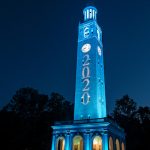About
Mission
Founded in 2020, the Asian American Center’s mission is to cultivate a critical understanding of Asian American peoples, cultures, and histories. Through education, organizing, and advocacy, the AAC will engage and empower Asian American students, faculty, and staff and the greater Carolina community. The AAC will enhance the University’s commitment to excellence by expanding access to interdisciplinary learning and preparing the next generation of leaders for an increasingly multicultural society.
The goals of the AAC are to: (1) promote a public understanding of diverse Asian American identities, cultures, and histories and the role Asian Americans have played in shaping American society; (2) support UNC Asian American students, faculty, and staff and the local Asian American community; (3) connect those with Asian American interests to greater regional, national, and global conversations.
History
The Asian American Center came about through the work of students, alumni, staff, faculty, and administrators. The work of the student Asian American Center Campaign team and alumnus Eugene Lao (’91) were recognized by the University Diversity Awards in Spring 2020.
Articles on the AAC campaign and establishment:
UNC students and alumni are working to create an Asian American Center (10/1/2019)
‘It’s a surreal feeling’: Asian American Center approved by Board of Trustees (1/30/2020)
After a long advocacy campaign, UNC will get its first Asian American student center (2/1/2020)
北卡大教堂山分校 募款建亞裔中心 (5/20/2020)
佛光山捐款北卡大學亞裔中心1萬元 (7/22/2020)
What it means to be Asian American at Carolina
Other mentions in the media:
Martin Makes History: UNC’s First Native American Student Body President (9/12/2019)
Undergraduate Senate shows support for Asian American Center at Tuesday meeting (10/2/2019)
‘A way to come together’: Journey Into Asia challenged lack of representation (3/1/2020)
Carolina Up Close With Joe Kwon ’02 (6/3/2020)
Acknowledgments
Language adapted from the UNC Office of Diversity and Inclusion.
The AAC recognizes the land and sovereignty of Native and Indigenous nations in Chapel Hill, in North Carolina, in North America, and across the world. The University of North Carolina sits on the land of the Occaneechi, Shakori, Eno, and Sissipahaw peoples.
Additionally, NC has been home to many Indigenous peoples at various points in time, including the tribes/nations of: Bear River/Bay River, Cape Fear, Catawba, Chowanoke, Coree/Coranine, Creek, Croatan, Eno, Hatteras, Keyauwee, Machapunga, Moratoc, Natchez, Neusiok, Pamlico, Shakori, Sara/Cheraw, Sissipahaw, Sugeree, Wateree, Weapemeoc, Woccon, Yadkin, and Yeopim. Today, NC recognizes 8 tribes: Coharie, Lumbee, Meherrin, Occaneechi Saponi, Haliwa Saponi, Waccamaw Siouan, Sappony, and the Eastern Band Cherokee.
UNC Chapel Hill is an institution built by enslaved Africans and their enslaved descendants, and our institution did not admit Black students until 1955. Today, Black individuals and People of Color disproportionately work as service staff on our campus and in our wider society. This community is largely responsible for the maintenance on our campus, the food and food service available to us at Chapel Hill, and many other basic necessities that make our gatherings possible.
These acknowledgments frame the AAC’s commitment to education about the intersecting histories and cultures of communities of color and our plans to partner with community organizations.

